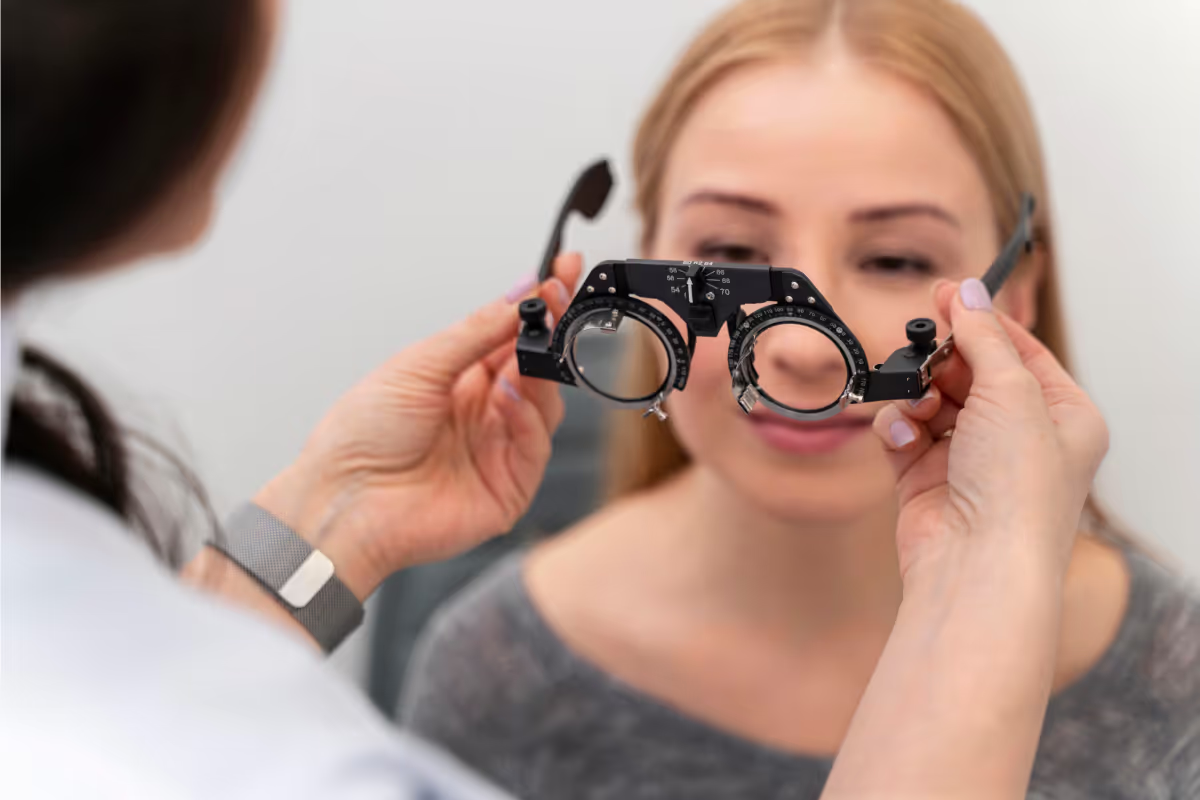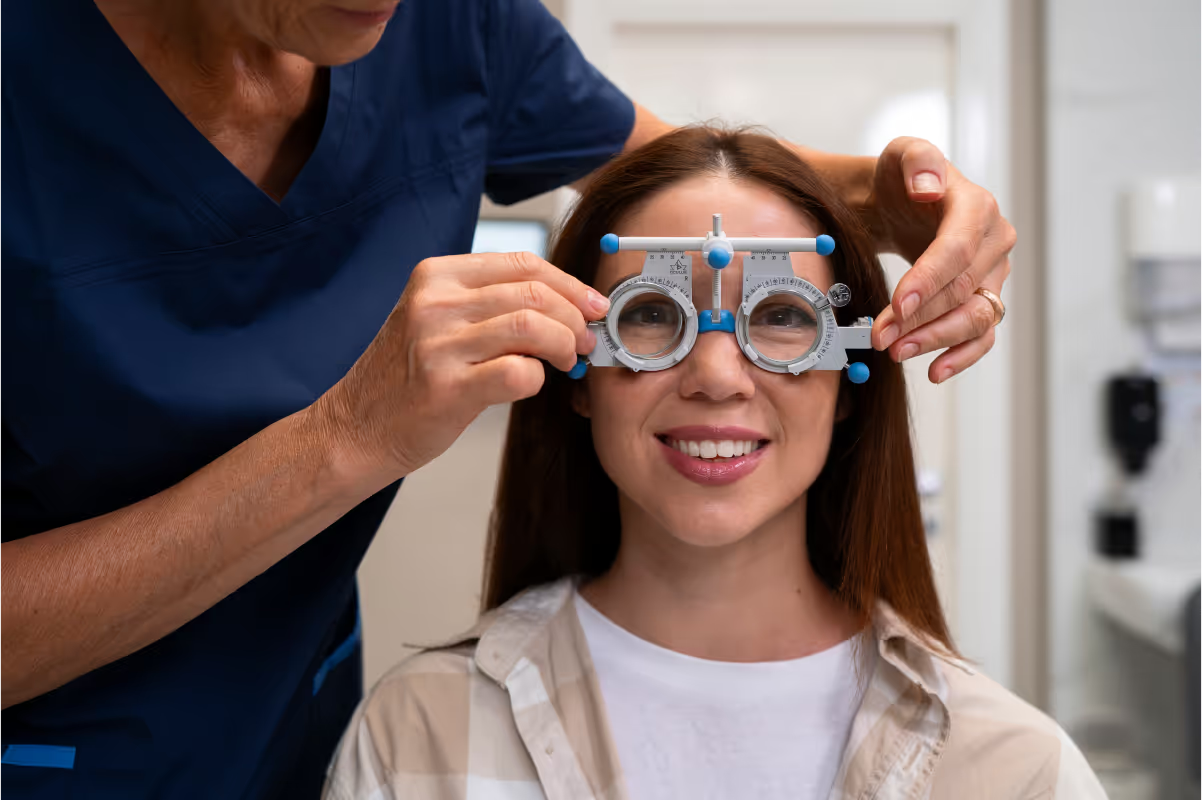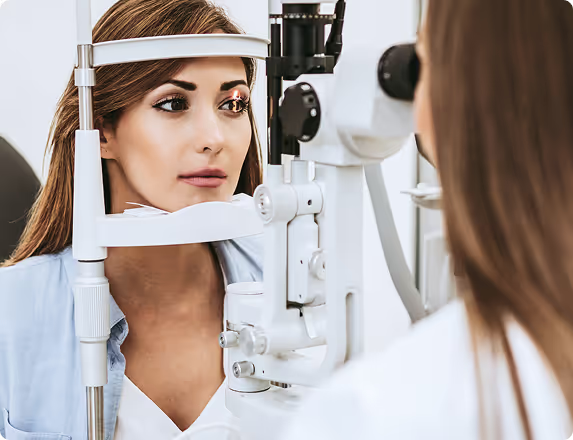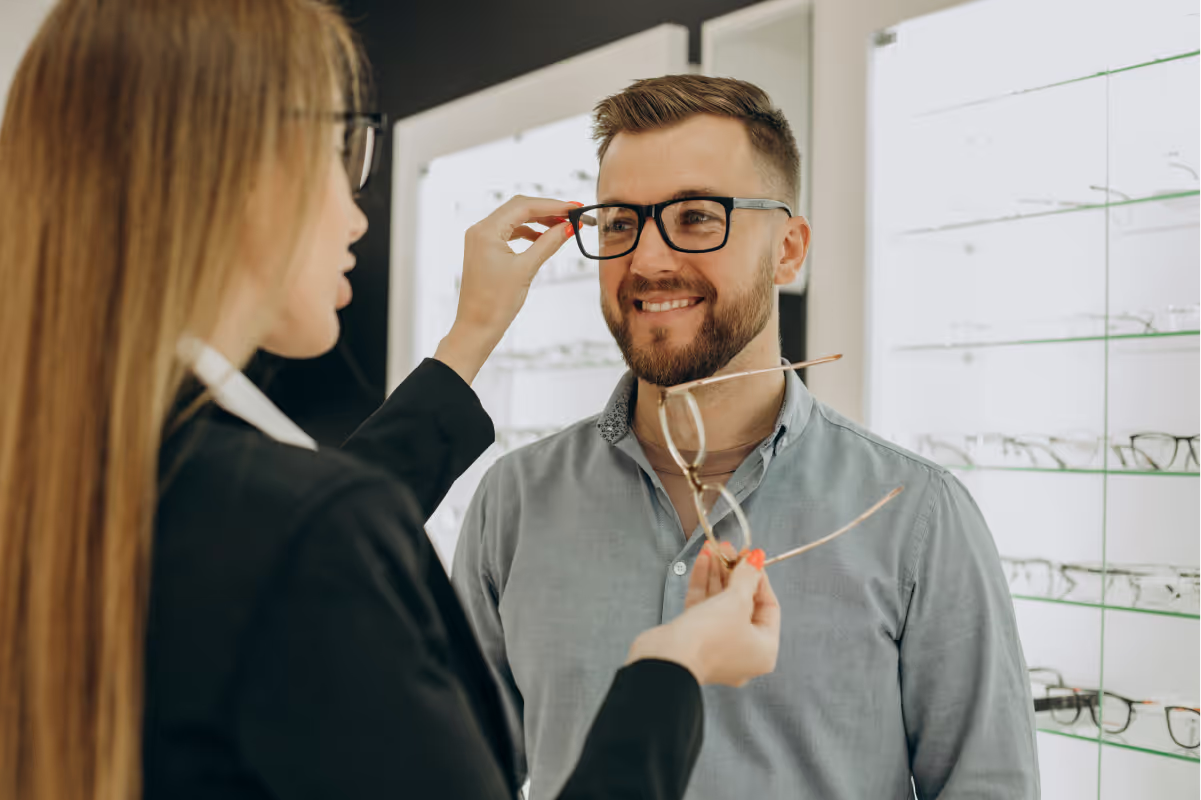
Comprehensive Eye Examinations
Keeping Your Vision Clear and Healthy
We provide both private and NHS eye examinations, starting with a discussion about your eye health and any concerns. For new patients, we take a detailed medical and eye health history to ensure a complete understanding of your vision needs.


Your examination includes a vision test, binocular function assessment, and a thorough eye health check using a specialist microscope. We also offer Optical Coherence Tomography (OCT) for a complete retina analysis, included in private exams and optional for NHS patients.
Personalised Vision Solutions
If a vision correction is needed, we’ll discuss the best glasses or contact lens options for you. Our expert dispensing opticians will guide you in finding the most suitable solution for your lifestyle and vision requirements.


Optomap
What is Optomap?
Advanced 3D OCT Eye Scanning
Our 3D Ocular Coherence Tomography (OCT) scan provides a detailed, beneath-the-surface view of your eye, helping detect conditions like glaucoma, macular degeneration, and diabetic retinopathy during routine eye tests.

Protect your vision with a comprehensive eye examination. Schedule your appointment today for personalised, expert care! See the world more clearly with a comprehensive eye examination.
Testimonials
An excellent and well-run establishment. Briefly. In the run-up to Christmas I laboured under inflamed and irritated eyes. An initial examination revealed many tiny abrasions. It seemed simple. But the proprietress was suspicious and conducted further tests, also enquiring into apparently unrelated symptoms. She correctly identified a particular eye disease, and wrote out an effective prescription. A thoroughgoing professional, likeable, hugely competent and all-round mistress of her trade.
Ross Atabey
Fantastic service received today and probably one of the friendliest businesses I have ever been into. The checkup was thorough, the staff friendly and I even had my kids looked after whilst I had my appointment. I wholeheartedly can't recommend them enough. And for anybody worried about Coronavirus, the premises was spotless, the staff all in PPE and hand sanitizer available as you walk through the door, so I think they've aced that one too.
Mark Powell
Thanks so much. The amazing opticians timely and diligent referral to the hospital ensured a super fast response and treatment for what could have been a painful issue. Many thanks to Amanda.
CMD
It is a pleasure to go to this Opticians; the staff are extremely friendly and courteous, the appointment times are adhered to, Joanne is extremely thorough, works with modern up-to-date equipment in a caring professional manner. Highly recommended.


© {{Year}} POPLE & BROAD LIMITED. All Rights Reserved. Company number: 6155629.

